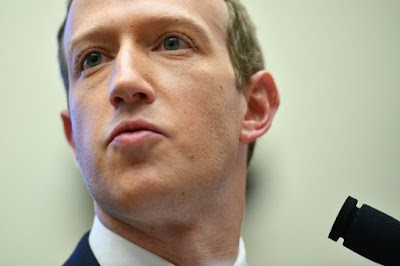Yahoo – AFP,
December 17, 2019
 |
Instagram launched a US-based fact-checking program in early 2019, which
has now gone global (AFP Photo/DENIS CHARLET) |
San
Francisco (AFP) - Instagram on Monday announced it had gone global in its fight
against misinformation, expanding its third-party fact-checking network around
the world.
The
Facebook-owned social platform launched a fact-checking program in the US early
this year.
"Today's
expansion is an important step in our ongoing efforts to fight misinformation
on Instagram," it said in an online post.
"Photo
and video based misinformation is increasingly a challenge across our industry,
and something our teams have been focused on addressing."
Facebook
and Instagram, like many other social media platforms, have come under intense
pressure in the United States and globally for allowing misinformation to
spread.
Instagram
initially began working with third-party organisations in the US to help
identify, review and label bogus posts.
Facebook
began its own version of the program in December 2016.
Agence
France-Presse currently works with Facebook's fact-checking program in almost
30 countries and nine languages. AFP will also fact-check Instagram posts.
Around 60
media, including news organisations and specialised fact-checkers, work
worldwide on the Facebook program.
Under the
program, content rated "false" by fact-checkers is downgraded in news
feeds so fewer people will see it.
If someone
tries to share a post found to be misleading or false, Facebook presents them
with the fact-checked article. No posts are removed from Facebook and
fact-checkers are free to choose how and what they wish to investigate.
Instagram
uses the same methods.
Content
deemed to be false is ignored by Instagram's search or recommendation tools and
is shown with a warning label if users come across it.
"When
content has been rated as false or partly false by a third-party fact-checker,
we reduce its distribution," Instagram said.
"In
addition, it will be labeled so people can better decide for themselves what to
read, trust and share."
Once a post
is found to be deceptive, software searches for it across Instagram's platform
to brand it accordingly.
"We
use image matching technology to find further instances of this content and
apply the label, helping reduce the spread of misinformation," Instagram
said.
"In
addition, if something is rated false or partly false on Facebook, starting
today we'll automatically label identical content if it is posted on Instagram
(and vice versa)."
Instagram
will also expand an anti-bullying feature developed earlier this year.
Artificial
intelligence software will scan captions and comments as people write them and
will notify users if their comments could be considered offensive.
"We've
found that these types of nudges can encourage people to reconsider their
words," Instagram said.












